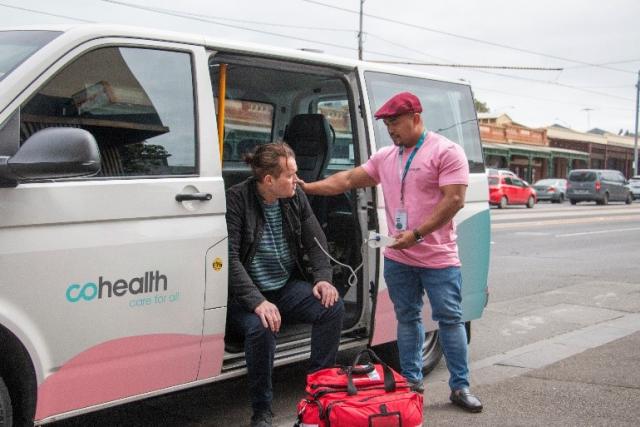Hannah Hammoud
Being intoxicated in public will now be treated as a health issue following changes to Victoria’s public intoxication laws which came into effect on November 7.
The department of health said the previous public intoxication laws in Victoria had an unacceptable and disproportionate impact on the state’s Aboriginal and Torres Strait Islander communities.
Not-for-profit community health service cohealth, is one of several health agencies delivering a health-led response to public drunkenness in Victoria following the decriminalisation of public intoxication.
cohealth has introduced new pink uniforms and branded vehicles to deliver public intoxication health services across metro Melbourne, including Sunshine, Deer Park and St Albans which have been identified as areas of high demand.
The new health-led model will see outreach services supporting people who are intoxicated in public in the areas they are needed most, and if needed, providing them with transport to a safe place.
cohealth will employ 40 staff in its public intoxication service, across both its outreach teams and at the sobering-up centre in Collingwood.
Up to 10 outreach teams will be available throughout the week on-call and proactively visiting hot spots in Melbourne to provide support.
The outreach team will be proactively out on the streets from 8pm-4am on Thursday, Friday, Saturday and Sunday nights and on-call 24/7 at other times.
The outreach team is comprised of a nurse and an alcohol and drug specialist who carry a medical kit, water, snacks and mobile chargers.
cohealth deputy chief executive Christopher Turner said providing an on-the-ground health response will reduce demand on police and ambulance, but outreach teams will also have the ability to escalate to emergency services
if required.
“We’re ready to deliver a new service that could literally change the trajectory of someone’s life, giving them a lifeline instead of a lockup,” he said.
As part of the response, cohealth is introducing new pink polos to distinguish its public intoxication outreach workers from police and emergency services workers who wear navy.
“We want to create a feeling of safety and calm, especially for clients who have had negative experiences with police and institutions, and even our uniforms can impact client interactions,” Mr Turner said.








